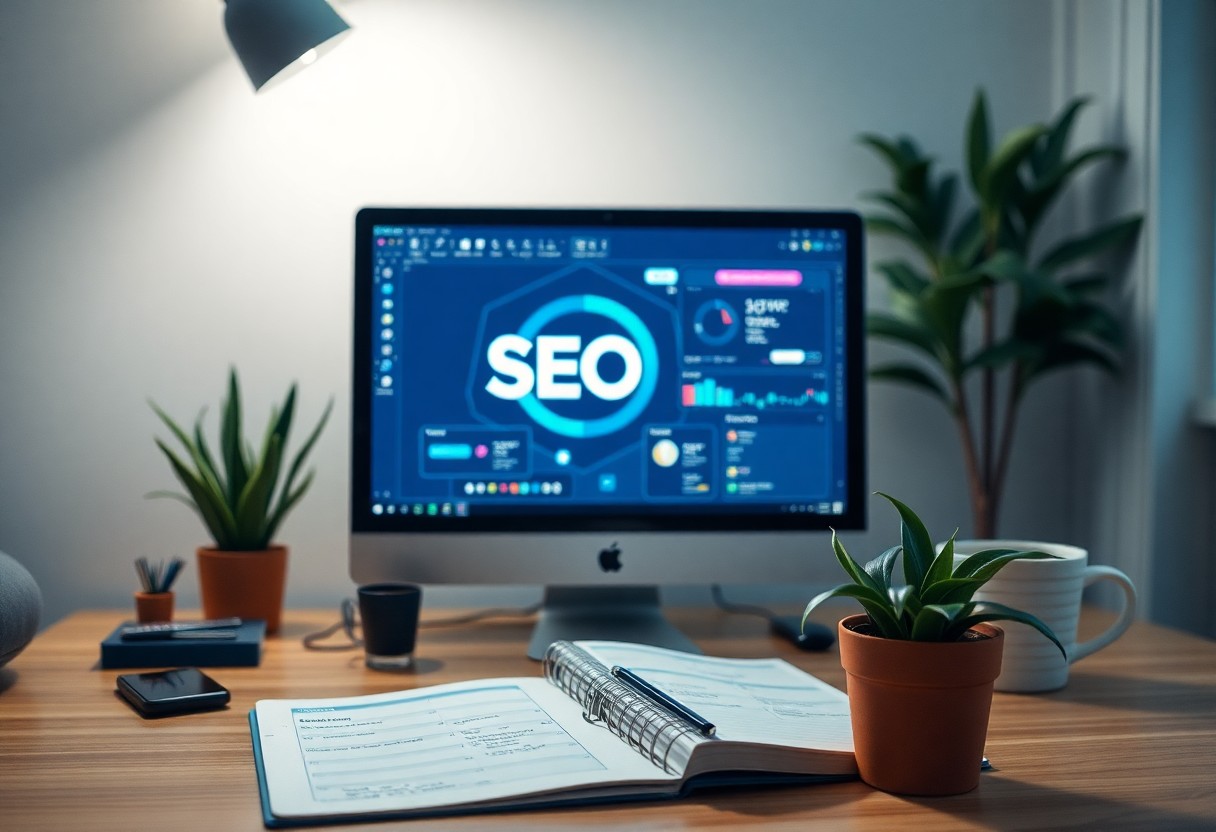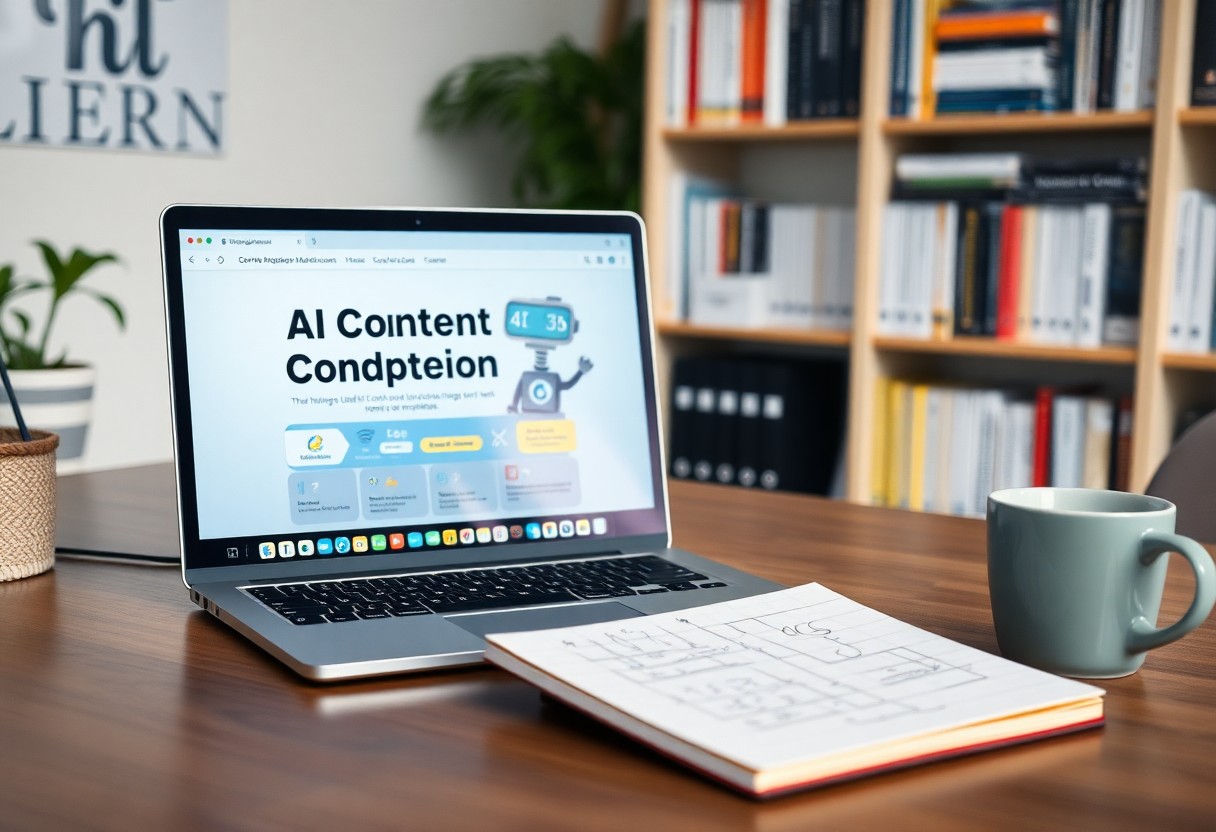
AI-Powered SEO Tools for Small Business – Our Top Picks.
Most small business owners understand the importance of search engine optimization (SEO) in driving traffic and sales. However, navigating the complex world of SEO can be overwhelming, especially with limited resources. Fortunately, AI-powered SEO tools are here to simplify the process, offering tailored solutions to enhance your online presence. In this blog post, we’ll explore our top picks for AI-driven SEO tools that can help you optimize your website, improve rankings, and ultimately boost your business performance.
The Game-Changing Role of AI in SEO
Artificial Intelligence has revolutionized SEO by streamlining processes that were once time-consuming and complex. By leveraging sophisticated algorithms, AI tools can analyze vast amounts of data to provide you with insights that enhance your search ranking strategies. These advancements not only save you time but also increase accuracy in targeting, making your marketing efforts more effective. With AI at the helm, you can elevate your small business’s online presence and compete with larger entities.
Automating Keyword Research for Maximum Impact
AI-driven tools have transformed keyword research by automating the identification of high-impact search terms tailored to your audience. Instead of sifting through spreadsheets, these tools analyze search trends, competition, and user intent in real-time. This allows you to focus on strategic content creation based on data-driven insights, maximizing your SEO efforts without the exhaustive legwork.
Enhancing Content Creation with AI-Driven Insights
AI not only aids in keyword research; it also enhances content creation by providing insights on what resonates with your audience. By analyzing user behavior and preferences, AI tools can suggest topics, headlines, and even writing styles that are more likely to engage readers. This empowers you to craft quality content that aligns with audience expectations, increasing your chances of driving organic traffic and conversions.
You can utilize AI-driven insights to tailor your content specifically to address common questions or pain points within your target audience. For example, tools like Clearscope and MarketMuse can analyze performance metrics and provide keyword suggestions that improve readability and relevance. Data-driven recommendations not only help you keep pace with industry trends but also empower you to create innovative and evergreen content that establishes your brand as a trusted resource in your niche—ultimately fueling your SEO success.
The Best AI-Powered SEO Tools for Small Businesses
Discovering the right AI-powered SEO tools can transform your small business’s digital presence, boosting search rankings and driving organic traffic. We’ve sifted through numerous options and identified standout tools that not only meet the unique needs of small businesses but also provide robust features, user-friendly interfaces, and scalable solutions. Here are our top picks that can make a substantial impact on your SEO strategy.
Tool #1: Comprehensive Features and Unique Selling Points
This tool offers an all-in-one solution combining keyword research, site auditing, and content optimization, designed specifically for small businesses. Its advanced algorithms provide data-driven insights, helping you identify high-potential keywords while also analyzing competitor strategies. Unique selling points include seamless integration with popular content management systems and regular updates that keep the tool aligned with the ever-evolving SEO landscape.
Tool #2: User Experience and Affordability Breakdown
With its intuitive interface, this tool caters to users of all experience levels. Its affordability sets it apart, making powerful SEO capabilities accessible even for tight budgets. Monthly subscriptions often start at around $29, offering vital features that cover basic SEO needs without overwhelming you with complex functions.
Designed with small business owners in mind, the user experience is markedly straightforward, allowing you to navigate easily and locate necessary features. A dedicated customer support team is available to help with any inquiries, further enhancing accessibility. You can access detailed analytics without needing to be a tech expert. The affordability combined with such a user-friendly approach ensures that you maximize your SEO efforts without breaking the bank.
Tool #3: Integrations and Scalability Potential
This SEO tool excels in offering seamless integrations with various platforms and applications, such as Google Analytics, social media channels, and email marketing services. These integrations amplify your marketing strategies, allowing you to analyze data holistically and adapt quickly as your business grows.
As your small business scales, this tool’s flexibility in accommodating increased demands sets it apart from competitors. It not only provides additional features as your needs evolve but also facilitates smooth integrations with other software, ensuring you can maintain an efficient workflow. This adaptability empowers you to fine-tune your SEO strategy while expanding your online presence without having to switch tools or endure a steep learning curve.

Practical Application: Integrating AI Tools into Your Workflow
Integrating AI-powered SEO tools into your workflow enhances efficiency and improves your search engine rankings. Start small, trialing a couple of tools to see which best meets your needs before scaling to more complex systems. They can assist in keyword research, content creation, and performance analysis, allowing you to focus on strategy and growth.
Step-by-Step Guide to Implementing AI Tools
| Step | Description |
| 1. | Identify specific SEO goals based on your business objectives. |
| 2. | Research and select AI tools suited for your needs. |
| 3. | Integrate the tools into your current workflow. |
| 4. | Monitor performance and adjust as necessary. |
Tips for Measuring Success and ROI
Measuring the success of your AI-driven SEO strategies is necessary for understanding your return on investment (ROI). Key performance indicators (KPIs) such as organic traffic growth, keyword rankings, and conversions provide valuable insights. Evaluating these metrics will help you determine the effectiveness of the tools in achieving your business goals.
- Set specific, measurable goals for your SEO efforts.
- Regularly analyze performance metrics to compare against benchmarks.
- Adjust your strategy based on data insights to continue improving results.
This systematic approach ensures that you are continually optimizing your efforts. Regular evaluations will highlight which aspects are working well and which may need tweaking. Consider tools that provide robust analytics to support your decision-making process in this area.
- Utilize reporting features of your AI tools to track progress over time.
- Engage in A/B testing of different strategies to identify the most effective.
- Solicit customer feedback to evaluate the impact on user experience.
This feedback loop will refine your SEO tactics and better align with consumer preferences, ultimately leading to a higher ROI. Focus on long-term growth metrics like customer lifetime value to widen your perspective on success beyond immediate results.
Navigating the Challenges: Limitations and Pitfalls of AI Tools
AI tools, while innovative, come with their own set of challenges. These can include an over-reliance on algorithms, which may misinterpret context or lack the nuance necessary for effective SEO strategies. For small businesses, understanding these limitations is important for harnessing the full potential of AI-driven solutions without falling into the traps of automation. While AI can assist in keyword research and analytics, human judgment remains irreplaceable in areas such as content creation and strategy formulation.
Common Misconceptions About AI in SEO
A common misconception is that AI tools can completely automate SEO activities without any human input. Many believe that simply implementing an AI tool guarantees top-ranking results, overlooking the fact that these tools require oversight to align with unique business goals and market dynamics. Understanding the role of AI as a supportive tool, rather than a standalone solution, is important for successful SEO outcomes.
Balancing AI Assistance with Human Expertise
Striking a balance between AI assistance and human expertise is vital for achieving optimal SEO results. Relying solely on AI may lead to generic outcomes that fail to resonate with your specific audience. Your experience and intuition are irreplaceable in crafting content that engages your target market. Combining these elements ensures that the efficiency of AI complements the creativity and strategic thinking that only you can provide.
Leveraging both AI tools and human expertise can significantly enhance your SEO efforts. For instance, while an AI tool can quickly analyze thousands of keywords and trends, it cannot understand the emotional tone or brand voice your audience connects with. Your skills in storytelling and an understanding of your audience can guide the content creation process, allowing you to utilize AI-generated insights while ensuring your message remains authentic and engaging. This synergy not only boosts productivity but also fosters innovative strategies that truly reflect your brand, leading to sustainable growth in your SEO endeavors.
The Future of SEO: How AI Will Shape Digital Marketing Strategies
The integration of AI in SEO is redefining digital marketing strategies. As algorithms become more sophisticated, they’ll enhance understanding of user behavior and intent, potentially leading to hyper-personalized content delivery. Small businesses can benefit from AI’s ability to analyze vast data sets, predicting trends and optimizing websites for better search engine rankings, ultimately shaping the future landscape of digital engagement.
Emergent Trends and Predictions for Small Businesses
AI is ushering in a wave of trends that small businesses should leverage. Predictive analytics will allow you to anticipate customer needs, while voice search optimization is rapidly gaining traction. Additionally, automated content creation tools will enable you to maintain a consistent online presence, catering to the evolving demands of your audience, all of which together can enhance your competitive edge.
Preparing for Changes: Adaptation Strategies for Long-Term Success
Successfully adapting to AI-driven SEO changes requires strategic planning and a proactive approach. Investing in training for your team can ensure everyone is equipped to utilize AI tools effectively, while regularly revisiting your SEO strategies will help you remain agile in a rapidly evolving digital landscape.
Incorporating AI into your digital marketing framework begins with a solid understanding of the technology and your business goals. You can start by implementing tools that offer predictive analytics, allowing you to make data-informed decisions. Regularly reviewing performance metrics will help you spot trends and adjust your strategies promptly. Collaborating with experts or engaging in continuous education about emerging technologies will further ensure that your approach remains innovative, ultimately driving long-term growth and resilience in an increasingly competitive online marketplace.
Final Thoughts
Embracing AI-powered SEO tools can significantly enhance your small business’s online visibility and efficiency. By automating processes and providing insights based on data, these tools can reduce the time you spend on manual tasks, allowing you to focus on strategic growth. For instance, users of platforms like SEMrush have noted a 30% increase in organic traffic within months of implementation. As you navigate the evolving landscape of digital marketing, integrating these advanced technologies can help you stay ahead of the curve and achieve sustained success in reaching your target audience.


